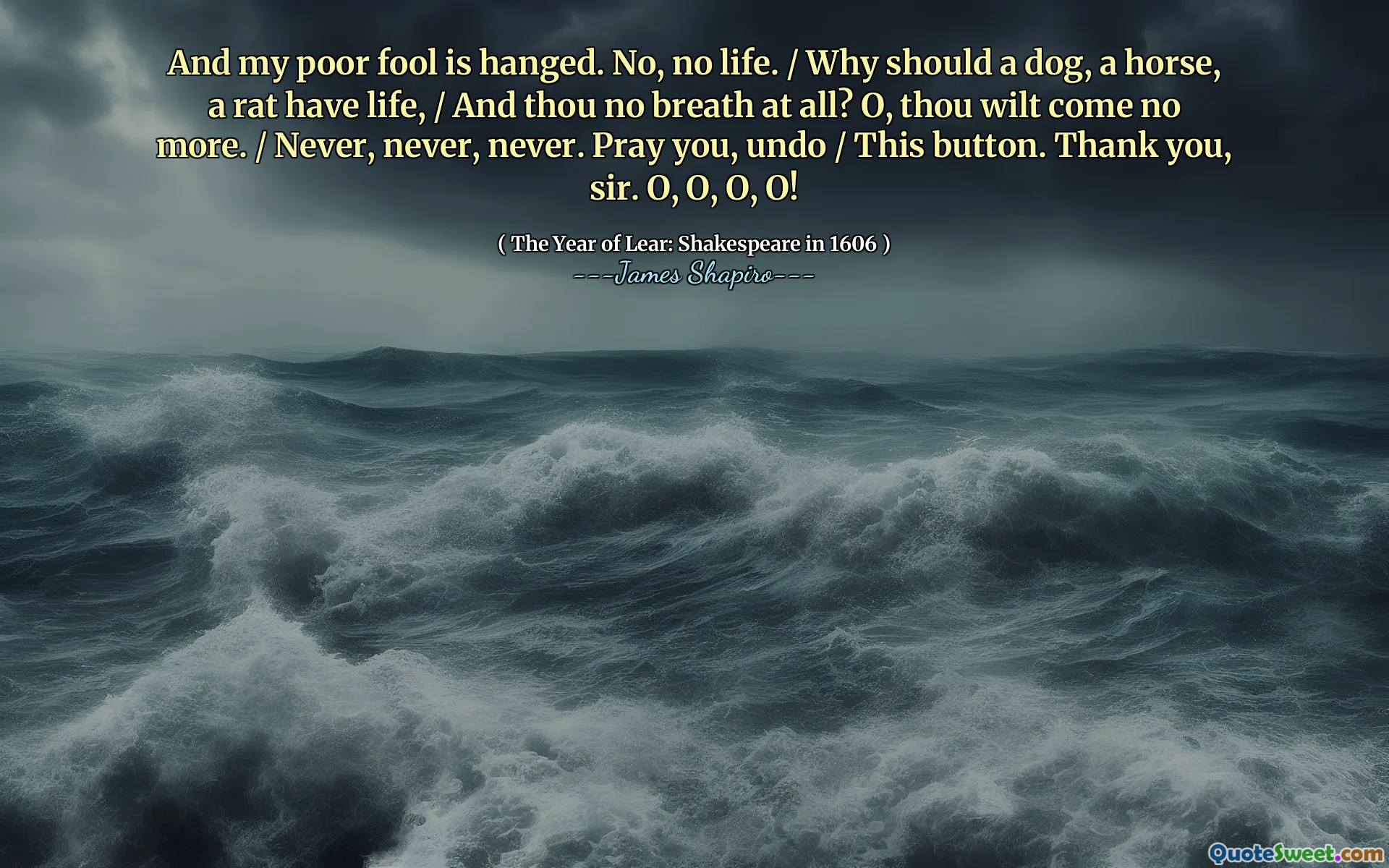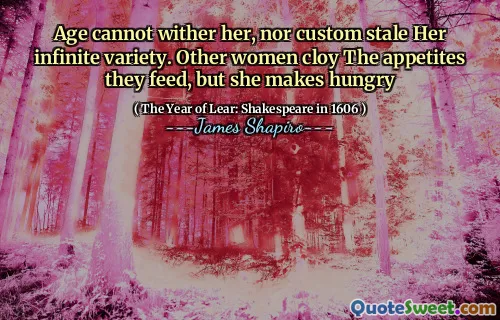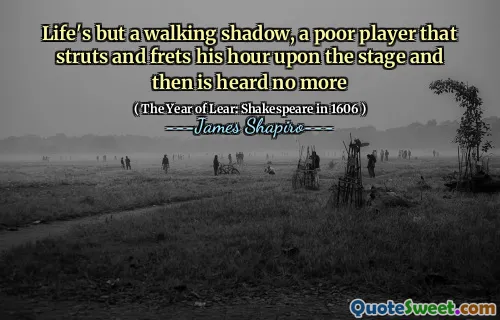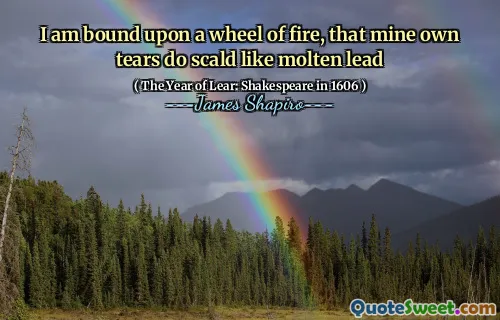
And my poor fool is hanged. No, no life. / Why should a dog, a horse, a rat have life, / And thou no breath at all? O, thou wilt come no more. / Never, never, never. Pray you, undo / This button. Thank you, sir. O, O, O, O!
In James Shapiro's "The Year of Lear: Shakespeare in 1606," the author delves into the profound themes of mortality and despair expressed in the iconic line from King Lear. The speaker grapples with a deep sense of loss, questioning the fairness of life and death as they mourn the absence of a loved one. The imagery of animals with life juxtaposed against a deceased person underscores the tragedy of existence and the weight of grief.
The emotional turmoil is palpable as the speaker expresses a desire for the dead to return, reflecting a universal longing that resonates with audiences. The repetition of despair and the plea to undo a button symbolize a desperate wish to reverse the irreversible. Through this exploration, Shapiro highlights the complexity of human emotion, capturing the essence of Shakespeare's portrayal of tragedy and the human condition.











